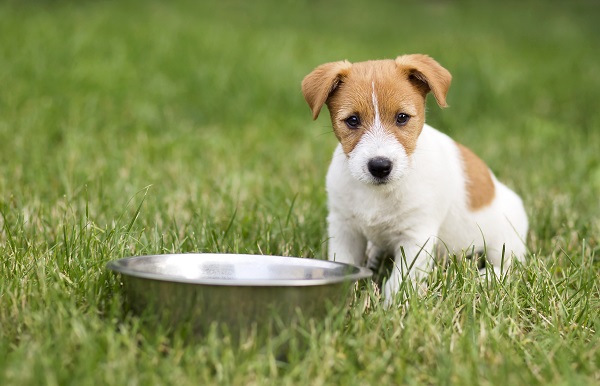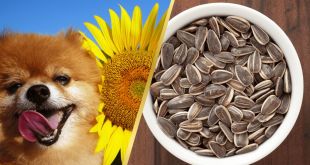There are a lot of plans to make when you are about to welcome a puppy home. Among them, selecting the right puppy food is one of the most important. Growing puppies have high nutritional requirements.
Hence, their dietary needs can be achieved with a blend of protein, fat, and other calcium-rich foods. A proper diet will strengthen puppies’ immunity, help in skeletal development, and lead to their overall growth.
Can we feed the puppy adult dog food?
If you are already parenting adult dogs, you may think your puppy can have the same food as the other dogs. According to the vets, adult dog foods lack the nutrition that the puppies require. Since the puppies are growing, they burn more calories, and their requirements for protein, calories, fat, and minerals are comparatively high.
So, adult dog foods cannot fulfill their nutritional requirements. A growing puppy needs puppy food. Food that is specially designed to fulfill its dietary requirement for normal growth.
Feeding the wrong food to puppies increases the risk of developing hip dysplasia or a crippling form. So, before you bring your puppy home, it is crucial to be aware of certain things to select the best food for your new home member.
What food should we give to a puppy?
There are usually two types of puppy foods available in the market-dry and wet. Most veterinarians recommend high-quality dry food or kibble containing all the nutrients the young pup requires. Most kibbles are high in carbohydrates.
Canned foods, on the other hand, contain too much moisture but sometimes have higher protein content. Puppies, most of the time, are picky eaters. So you can offer both options to see which one your pup will like. Many pet parents include both kinds of food in their puppies’ diet.
When reviewing the quality of dog food, pay close attention to the list of ingredients and feeding guidelines. It would be best if you were looking for food that contains ingredients like vegetables, grains, poultry, meat, and fruits. You should foods that are filled with by-products.
However, raw diets are not beneficial for young pups. The raw ingredients can have lots of bacteria, which the immune system of puppies will not be able to handle. However, you can always add cooked meats, vegetables, or rice to their diet.
Do all dog breeds eat the same food?
You should always purchase the appropriate formula for the type of dog breed you are bringing home. Since the nutritional requirements vary according to the dog breed. Most puppy foods are available in regular, small-breed, and large-breed formulations.
Large breed formulas suit the puppies expected to weigh 60-75 pounds when they turn adult. Small breed formulas are for those expected to weigh below 20 pounds when they grow up. For anything in between, you should go with the regular formulation.
How often do we need to feed the puppy?
Puppies under six months of age must be fed three times daily. It is recommended not to leave the food for the puppy so that it can eat whenever it likes. If you want to develop a feeding schedule, from the beginning, you have to make it eat at a specific time. After six months, the pups can be given meals twice daily.
However, after having a meal, the pup should have some quiet time. Too many activities just after taking the meal can cause stomach upset.
What should be the amount of food to offer?
Most of the time, the dog owners follow the quantity written on the back of the puppy food bags. But many puppies need less quantity of food than what is mentioned in the bag while few others need more. Your veterinarian can recommend the proper food your puppy needs to maintain optimal weight.
One of the most common complaints of the dog’s parents is that the puppy is not eating well, and hence it is not gaining weight or growing fast. They want somehow their pet should eat more. The vets never encourage overeating, and you should also not do that.
If they attempt to make their dogs grow faster artificially, it may lead to joint and bone disorders. It is always advisable to feed the dog how much it wants.
Should we give treats to puppies?
Since puppies are in their formative years, they learn many new skills and develop good habits. Most pet parents offer them treats to appreciate their good behavior. You can offer treats as a reward, but not in excess quantity. Hard chew treats keep puppies engaged for longer and even help improve their gum health.
However, treats must not exceed 10% of your puppy’s caloric intake. You should be careful not to fill your puppy with treats just before mealtime. Puppy’s food must be the sole source of nutrition that it needs.
What puppy food vets recommend?
Many types of puppy food brands are available in the market, and they all claim to provide the best nutrition. How to decide which one is appropriate for your pup? It is quite a daunting task to choose the best puppy food; among the numerous brands available in the market.
According to veterinary doctors, puppy foods should be selected considering their age, breed, and health requirements. Instead of looking into the specific ingredients, one should ensure that the food is well-balanced for the puppies.
Some of the well-known vets recommended puppy food include the following:
- Nutro Wholesome Essentials Puppy
- Blue Buffalo Life Protection Formula Puppy
- Purina Pro Plan Development Puppy Large Breed Formula
- Iams ProActive Hoo much calcium health Smart Puppy Original
- Hills Science Diet Puppy Large Breed
- Merrick Grain-Free Puppy Plate Canned Dog Food
- ORIJEN Puppy High-Protein, Grain-Free, Premium Quality Meat
- Royal Canin Small Puppy Wet Dog Food
- Taste of the Wild High Prairie Puppy Formula
- Go! Solutions Carnivore Grain-Free
All of them are available on popular online shopping portals like Amazon.
When to switch puppies to adult food?
The vet recommends not switching your puppy to adult food very soon. Adult dog foods contain too much calcium, which can be dangerous for growing puppies. It is safer to discuss this with your veterinarian before you decide to switch from puppy food to adult food.
Most often, doctors recommend switching when your puppy is around 12 months. When making the switch, do it gradually, taking a long period.
Conclusion
It is essential to meet the nutritional needs of the pup. For balanced and complete growth, choosing a high-protein diet that supports muscle and tissue growth and DHA for vision and brain development is essential. Fats keep their hair and skin healthy.
Hence, a regular diet plan is essential to maintain the health of your puppy. Remember that beginning your puppy’s diet with vet-recommended high-quality foods helps prepare your pooch for a healthy, happy, and long life. 4 meals a day will help meet the nutritional needs.
 DogExpress
DogExpress





















 in Chandigarh, India.
in Chandigarh, India. 

